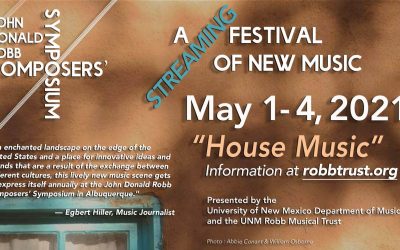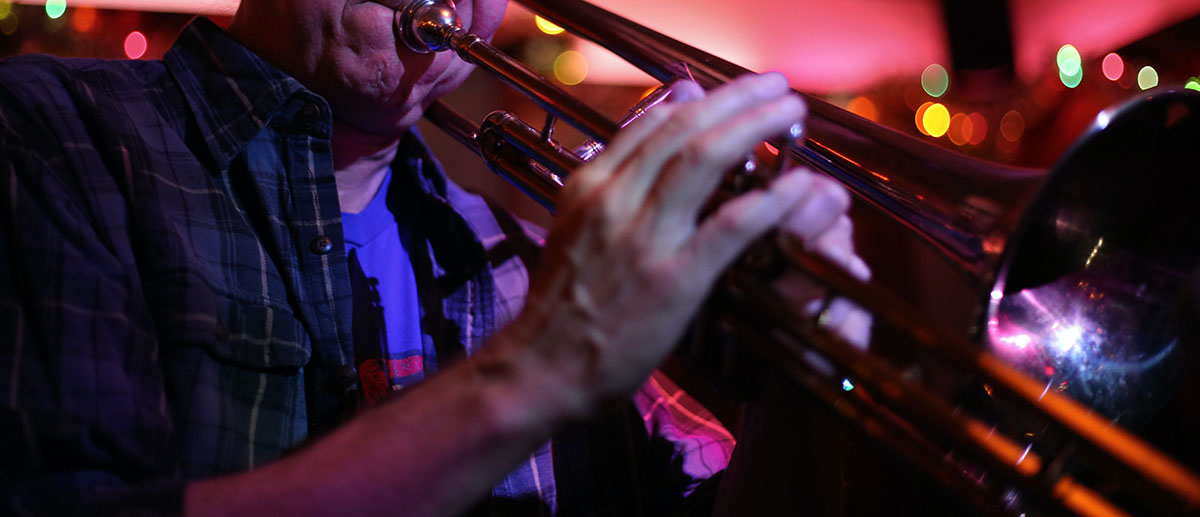From the streets of Baltimore, Maryland to the campus of The University of New Mexico in Albuquerque, Associate Professor, Dr. Richard White (R.A.W. Tuba) continues to make headlines. The most recent is the publishing of his autobiography, ‘I’m Possible’.
‘I’m Possible’ depicts an inspirational story of tenacity, a love for music, and triumph.
Growing up in Baltimore, White did his best to care for his mother who was battling alcoholism while experiencing homelessness and hunger. Searching for his mother one night resulted in a near-death experience in the snow and being taken in by his adoptive grandparents.
Under the care of his adoptive family, White discovered his purpose and passion for music and soon began his journey to musical success. He began his tuba studies with Ed Goldstein at age 12 at The Baltimore School for the Performing Arts, where he graduated with honors. He then went to the Peabody Conservatory of Music to study with David Fedderly (Principal Tubist, Baltimore Symphony) where he received his Bachelor’s degree. On the advice of Mr. Fedderly, Dr. White traveled to Indiana University to study with the legendary Professor Daniel Perantoni where he continued his studies receiving both his Master’s and Doctoral degrees.
“I am possible. You are possible. Everything is possible.” – Associate Professor, Dr. Richard White
White is now a professor at UNM where he holds the positions of associate professor of tuba/euphonium and associate director of the UNM marching band. Along with also being a motivational speaker, the principal tubist in the New Mexico Philharmonic, and a mentor for many, Dr. Richard White continues to create an impact on the UNM campus and Albuquerque area.
Throughout his musical and educational career development, Dr. White has had a passionate interest in motivational speaking. That dream has recently materialized itself with the launching of his website rawtuba.com. Sharing inspirational thoughts and philosophies that have motivated Dr. White has taken him to Mexico, South America, Europe, South East Asia and across the United States of America – with more engagements on the horizon.
“I want you to read this story and feel like you are a superhero. I want you to read this book and dream big, impossible dreams,” said White. “Looking at the beginning of my life, everyone would have thought it was impossible for me to survive, impossible for me to succeed, impossible for me to be who I have become. But here I am, standing on a stage, playing the tuba, living a happy life. I am possible. And therefore I know that anything is possible. I am possible. You are possible. Everything is possible.”
White’s story was eloquently presented in the documentary titled “R.A.W.Tuba: From Sandtown to Symphony”
Click here to purchase ‘I’m possible’ by Richard White, available on Oct. 5.
THE JOHN DONALD ROBB COMPOSERS’ SYMPOSIUM 2021 “HOUSE MUSIC”
THE JOHN DONALD ROBB COMPOSERS’ SYMPOSIUM 2021 “HOUSE MUSIC”STREAMING FESTIVAL OF NEW MUSIC May 1 – May 45 – 8:30 PM Since 1972, the internationally renowned symposium has brought composers and musicians from around the world to UNM for a series of public concerts and...
Dr. Karl Hinterbichler receives the Ken Hanlon Award from International Trombone Association
Dr. Karl Hinterbichler receives the Ken Hanlon Award from International Trombone Association The Kenneth Hanlon Award recognizes an individual that contributes greatly to the InternationalTrombone Association (ITA) and the trombone world with a spirit of generosity...
Dr. Kristina Jacobsen wins award for an article
Dr. Kristina Jacobsen wins award for an article The article ‘Don’t Even Talk to Me if You’re Kinya’áanii [Towering House]’: Adopted Clans, Kinship, and ‘Blood’ in Navajo Country” was awarded “the most thought-provoking article in Native American and Indigenous Studies...




